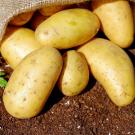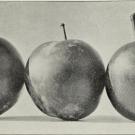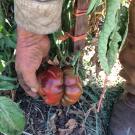Food loss and waste is very difficult to quantify, and much more research is needed to fully understand the losses across the food system cycle. This includes collecting and integrating higher resolution data regarding the quantity and characteristics of the waste produced, as well as timing, location, and driving factors of the losses. This foundational information enables a more robust understanding of the dynamics of the problem, the development of advanced solutions to improve efficiency and loss prevention, as well as new opportunities for broader outreach and education on this critical issue.
Metrics and Impact
Projects
Publications
Spang, E. S., L. C. Moreno, S. A. Pace, Y. Achmon, I. Donis-Gonzalez, W. A. Gosliner, M. P. Jablonski-Sheffield, M. A. Momin, T. E. Quested, K. S. Winans, and T. P. Tomich. (2019). Food Loss and Waste: Measurement, Drivers, and Solutions. Annual Review of Environment and Resources, Vol 44. https://doi.org/10.1146/annurev-environ-101718-033228.
Lange, M. C., Li, R., Apolzan, J. W., Huber, P. R., Steliotes, E., Robertson, K., Wilson, N. L. W., Jain, K., Ramnath, R., Roe, B. E., & Spang, E. S. (2025). Ontologies relevant for improving data interoperability for food loss and waste: A review and research agenda. Cleaner and Responsible Consumption, 19, 100330.
https://doi.org/10.1016/j.clrc.2025.100330
Kakadellis, S., Mao, S., Harwood, A., & Spang, E. S. (2025). State-level policies alone are insufficient to meet the federal food waste reduction goal in the United States. Nature Food. https://doi.org/10.1038/s43016-024-01092-w
-
Mabe, L., S. Pace, and E.S. Spang. (2022) A cluster-based spatial analysis of recycling boundaries aligning anaerobic digestion infrastructure with food waste generation in California. Resources, Conservation and Recycling Advances. 15, 200113. https://doi.org/10.1016/j.rcradv.2022.200113
Winans, K., E. Marvinney, A, Gillman, E. Spang. An Evaluation of On-Farm Food Loss Accounting in Life-Cycle Assessment (LCA) of Four California Specialty Crops. Frontiers in Sustainable Food Systems. (2020). https://doi.org/10.3389/fsufs.2020.00010
Kendall, A., E. S. Spang. (2019). The role of industrial ecology in food and agriculture's adaptation to climate change. Journal of Industrial Ecology. https://doi.org/10.1111/jiec.12851
Gillman, A., D. C. Campbell, E. S. Spang. (2019). Does on-farm food loss prevent waste? Insights from California produce growers. Resources, Conservation and Recycling 150:104408. https://doi.org/10.1016/j.resconrec.2019.104408
Spang, E.S., B. D. Stevens. (2018). Estimating the Blue Water Footprint of In-Field Crop Losses: A Case Study of U.S. Potato Cultivation. Sustainability 2018, 10(8), 2854; https://doi.org/10.3390/su10082854




